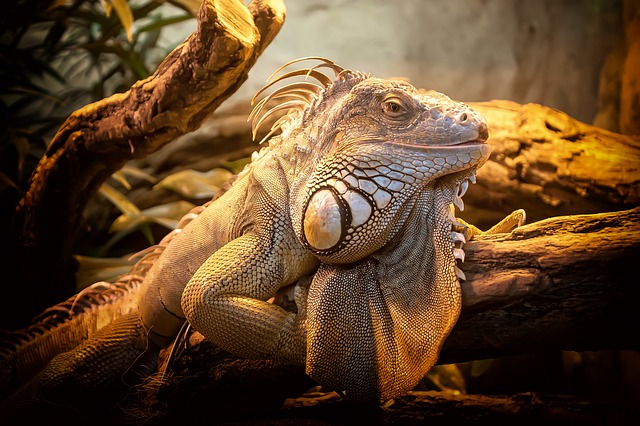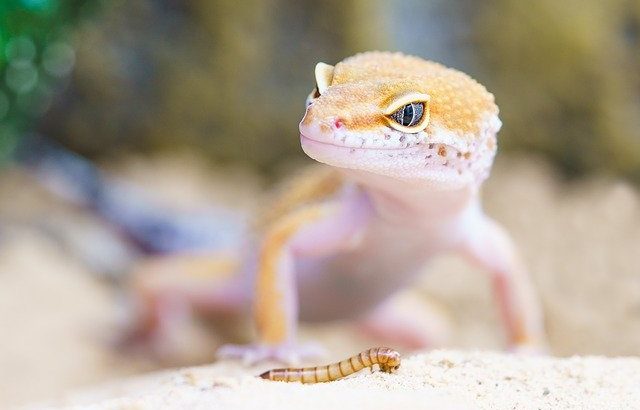Reptile Veterinarian: Is It the Right Career For You?
If you’re passionate about reptiles and have a knack for handling these small vertebrates, you might want to consider a career as a reptile veterinarian. Research shows that over 4 million U.S. households own at least one pet reptile. While that number pales in comparison to ownership rates of traditional companion animals — dogs, cats, etc. — reptiles still require medical care. There are a few things you should know about reptile veterinarians, however, before venturing down this career path.
What Is a Reptile Veterinarian?
A reptile veterinarian is a licensed veterinarian who specializes in pet reptiles. They offer many of the same services as companion animal veterinarians but for reptiles. All veterinarians, of course, offer medical services for animals. They are trained to diagnose, treat and prevent adverse medical conditions in animals. Veterinarians are trained to identify diseases and injuries in animals, and they are trained to treat those same diseases and injuries. Reptile veterinarians are no exception. They simply specialize in offering medical services for reptiles, whereas most other veterinarians offer medical services for traditional companion animals.
Common types of reptiles seen by reptile veterinarians include the following:
- Salamanders
- Turtles
- Snakes
- Bearded dragons
- Geckos
- Iguanas
- Skinks
- Chameleons
AVMA-Recognized Veterinary Specialists for Reptiles
While some reptile veterinarians are simply licensed veterinarians who are experienced and familiar with reptiles, others are considered American Veterinary Medical Association (AVMA)-recognized specialists. The AVMA recognizes over a dozen veterinary specialties. Each of these specialties focuses on a particular branch of veterinary medicine. In addition to shelter medicine and equine, for example, there’s reptile amphibian.
Reptile amphibian is one of several AVMA-recognized veterinary specialties. As the name suggests, reptile amphibian veterinarians are specialized to diagnose, treat and prevent adverse medical conditions in both reptiles and amphibians. Reptiles and amphibians share many of the same anatomic features. Therefore, they are grouped together under a single AVMA-recognized specialty: reptile amphibian. You can start a career as a reptile veterinarian without seeking this specialty.
Benefits of Working as a Reptile Veterinarian
Working as a reptile veterinarian is rewarding. You’ll be able to make a positive difference in the lives of reptiles as well as their owners. Reptiles can sustain injuries and develop diseases just like all animals. When an owner’s reptile becomes injured or sick, he or may she may rely on the services of a reptile veterinarian. You can provide these essential services to help reptiles make a full recovery.
Reptile veterinarians often get paid more than traditional companion animal veterinarians. Not all veterinarians have the knowledge or experience needed to treat reptiles. As a result, owners of reptiles may struggle to get the care their reptiles require. With fewer veterinarians offering services for reptiles, reptile veterinarians earn a high salary.

How to Become a Reptile Veterinarian
How do you become a reptile veterinarian exactly? The path to becoming a reptile veterinarian begins with the completion of a Doctorate of Veterinary Medicine (DVM) program. All licensed veterinarians must complete a DVM program. Reptile veterinarians are still licensed veterinarians; the only difference is that they specialize in reptiles. Regardless, you’ll need to complete a DVM program to become a reptile veterinarian.
DVM programs are offered at dozens of colleges and higher-education institutions throughout the United States. They consist of a four-year program that focuses on the fundamentals of veterinary medicine. Most of these colleges and higher-education institutions have prerequisites for enrollment. Before you can enroll in a DVM program, you’ll typically have to complete three to four years of studies. Only after completing these studies can you enroll in a DVM program.
Once you’ve completed a DVM program, you can then obtain a license to practice as a veterinarian in your respective state. Keep in mind that AVMA-recognized reptile amphibian veterinary specialists require additional training. All AVMA-recognized veterinary specialists must still complete a DVMA program. In addition to a DVM program, they must complete other forms of training. If you’re serious about succeeding as a reptile veterinarian, you may want to seek this AVMA-recognized specialty.
Starting Your Own Reptile Veterinary Practice: What You Should Know
After working as a reptile veterinarian for a given period, you may want to consider starting your own practice. Some reptile veterinarians work at existing practices, whereas others work at their own practice. Starting your own reptile veterinary practice will essentially allow you to run your business. You’ll have the freedom of setting your own prices, growing your list of clients and building professional relationships with other reptile-related businesses.
You can even start your own reptile veterinary practice without a brick-and-mortar location. Many reptile veterinarian practices are mobile. Like with other mobile veterinary practices, they offer their services out of a vehicle, such as a large van that’s equipped with medical equipment. You can still work as a reptile veterinarian at an existing practice, but you may eventually want to start your own practice.

